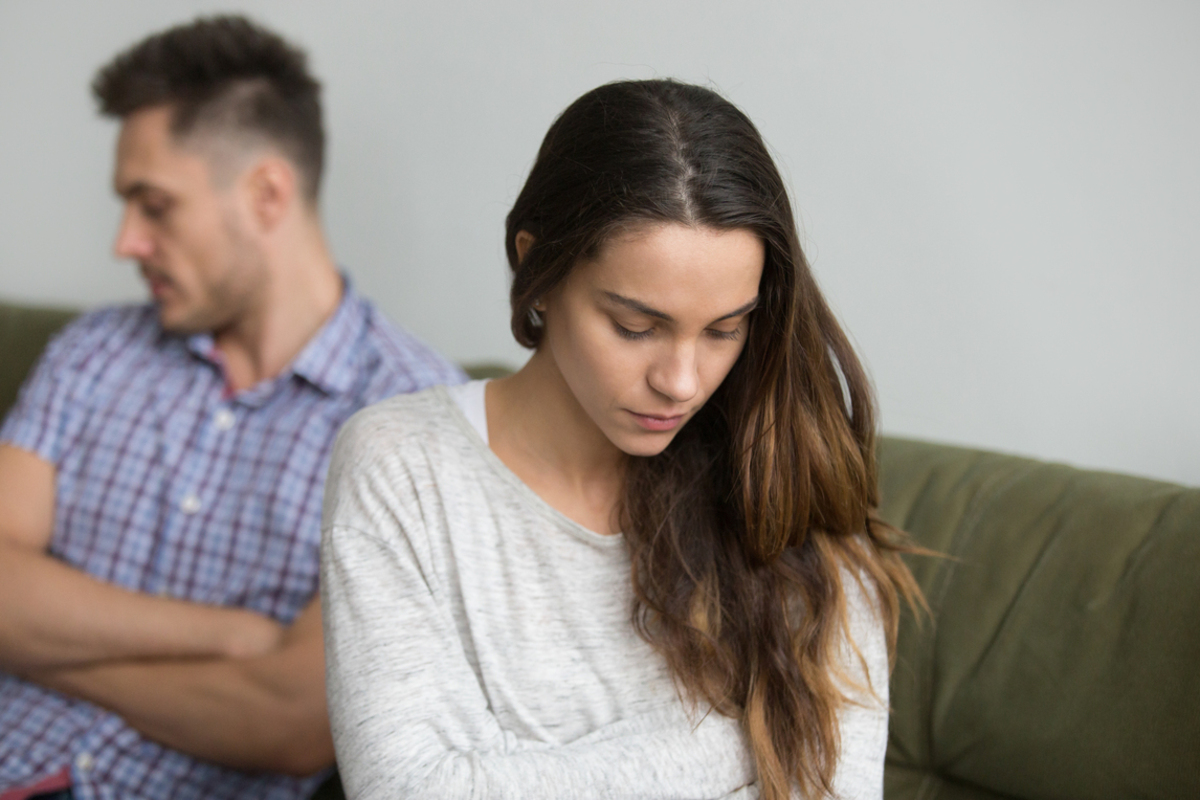To some, COVID-19 lockdown was a story with a decidedly dystopian flavor but an ultimately boring plot line. If you'd have asked these folks what they were going to do after shelter-in-place orders ended, they might have told you they were going to go swimming at a public pool, eat at their favorite restaurant, get drunk with friends at a cafe, or that they'd hit the mall.

What about the pandemic brought people to the brink of breakup and pushed some over the edge, though?
As a couple, you're 'in it together' — and you both amplify each other's external stress
The COVID-19 pandemic has been undeniably stressful, in ways both novel and familiar. Have you ever heard the phrase "bring your stress home"? Well, during the pandemic, it really had nowhere else to go.
Nearly everyone entered the pandemic with worries and fears about their health, loved ones, and often financial future, and many will have been scared for the global future of humanity when COVID-19 invaded all our lives, as well. On top of large-scale stress, there were of course the little stressors — adjusting to working from home, perhaps, wondering what to cook when supermarket stocks were low, or dealing with children who were frustrated they couldn't go and see their friends.
Research backs up what anyone's who's ever been married or lived with a romantic partner will definitely have found out for themselves. When you experience external stresses for which your partner is not to blame in any way, you pass that stress on to your life partner. This situation, in which you bring your worries and frustrations home, is called the stress spillover. It infects your partner, who becomes stressed because of your stress — and who then takes that same stress out on you.
There has been an awful lot of stress spillover to go around during the pandemic. In a normal situation, you might have coped with that stress by getting out of each other's hair for a bit and getting some alone time, socializing with your personal friends, or getting out of the house and doing something fun together.
For some couples, this stress feedback loop proved to be more than their relationship could handle. Research has also shown, however, that times of heightened existential stress increases the risk of domestic violence. Situations like natural disasters, and now the coronavirus pandemic, ultimately mean that victims of domestic violence have fewer escape options. Leaving a domestic violence situation is, of course, infinitely more complex than garden-variety breakups — and during this time, victims need more resources to help them leave.
But lockdown also amplified relationship problems you were previously able to ignore
Internal stress is stress that originated within you or your relationship — things like mental health struggles, infertility, disagreements about parenting decisions, or even differences in fundamental communication styles.
Living together is hard, and fundamentally different than dating. That's why some studies have found that couples who lived together before getting married are less likely to get divorced later on; these couples already know more about the big things that can potentially lead to marital conflict, as well as the annoying little things their partner does.
If living together is a challenge, it's no surprise that being joined at the hip can be a disaster. Lockdowns everywhere will have shown many people that their partners don't pull their weight around the house, chilling at their computer screens while expecting their other half to take care of all the chores and childcare.
COVID-19 as a life changer: Has the pandemic made you reevaluate your goals and dreams?
People who were already unsatisfied or unhappy before the pandemic may see COVID-19 as a wakeup call. For some, it's triggered a wish to move to the countryside, a decision to go back to college, or the goal of starting a new career. Folks who were coasting along in relationships that didn't meet their needs, meanwhile, might decide that this is the perfect opportunity to turn their lives around and get a divorce.
- Photo courtesy of SteadyHealth


Your thoughts on this